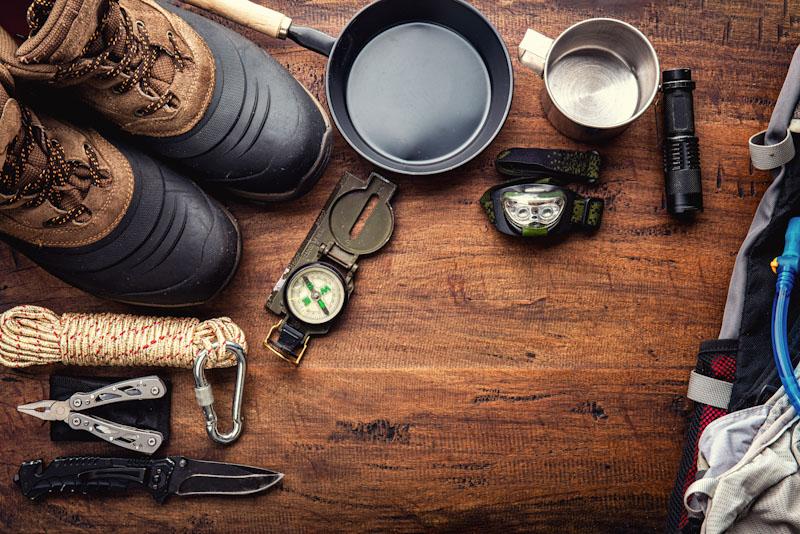If you know of me, it’s probably because of my writings and videos over the years meant to help the family medic in times of trouble. I’m talking about a true long-term disaster where the medical infrastructure has broken down, hospitals are out of commission, and doctors are not accessible for the foreseeable future. A post-apocalyptic world.
In 2010, I first wrote about what could happen to those with minor bacterial infections like cellulitis if there were no available antibiotics. I referenced the History Channel program called “After Armageddon,” where a paramedic and his family try to survive in a post-disaster landscape. In the show, the paramedic gets a minor injury, which he recognizes has become infected. No one, however, has antibiotics, so this trained professional can only watch his infection worsen. He dies a short time later.

Realizing the gravity of this, I looked for ways that a family medic could obtain the supplies necessary to avoid such preventable deaths. Having been involved in the aquarium hobby and raised tilapia in ponds, I knew of some antibiotics available for fish. I decided to check these out in depth and found about a dozen were identical to those used in humans. These few were unusual in that they were available only in human dosages, even though they were meant to treat your pet guppy. They also had the identical numbers, letters, and colors on the capsules as the human versions. After further research, it turned out they were the same as the human version, just redistributed in different containers to the pet fish and bird hobby.
So I suggested getting a supply, not for use in normal times, but to be held in reserve for disasters that could take society to the brink. They were available without a prescription and could be purchased in unlimited quantities, a huge benefit for the survival medic. That has now changed, and you should know about it.
On Dec. 14, the U.S. Food and Drug Administration announced the issuance of nine warning letters to manufacturers and distributors of “unapproved” antimicrobial animal drugs for violations of federal law.
The following companies received letters:
- American Aquarium Products
- Aquanest Biotic
- Aquarium Pharmacy LLC
- California Veterinary Supply
- Chewy Inc.
- Kraft Drug
- Midland Veterinary Services LLC
- Silver Lease LLC
- Valley Veterinary Clinic LTD
The agency claims the meds used for fish and birds were never registered for approval as veterinary medicine. Thus, the FDA considers them to be “new animal drugs” despite their being around for at least two decades, The agency says that using them outside of the direct supervision of a doctor or veterinarian contributes to the development of antimicrobial resistance, which occurs when microbes like bacteria become resistant to the drugs designed to kill them.
I can’t deny this statement is true; injudicious use of antibiotics can lead to just that.
Of course, I have always recommended these then-widely available meds as part of your medical storage for use specifically in societal collapse scenarios. This is something that, despite all the nation’s problems, has not happened (yet). If such an event occurred and the family medic had some of these stored away, they might prevent some of the unnecessary deaths that might occur in such scenarios by eliminating bacterial infections. With the new FDA warning, that is no longer an option.
The products affected by the FDA warning are not, so far, being applied for approval as a New Animal Drug, nor has the FDA conditionally approved them for the Index of Legally Marketed Unapproved New Animal Drugs for Minor Species – these are the main legal pathways for animal drugs to reach the marketplace. Since neither of these pathways are yet being taken (and may never be), the FDA considers drugs like Aqua-mox as being illegally marketed over the counter until an application is made and the approval process completed.
In the recent past, the FDA has removed accessibility without a prescription to many drugs, mostly for food-producing livestock. But now, the animal products referenced in the warning letters are marketed and labeled for aquarium fish and pet birds. The FDA goes on to quote prominent veterinarians about the risks of a layman using these medicines.
None of what they say is wrong, at least in normal times, but in a post-apocalyptic setting, this would be little consolation to a parent with a sick child or a woman with an infection after childbirth.
The FDA claims that many animal drugs are not identical to similar products approved for use in people. This is true, especially when it comes to dosing for small animals. I have only written about those that are, indeed, the same, were produced by human pharmaceutical companies and re-packaged for the pet trade, and were offered only in human dosages with identical markings as the human drug.
The drugs affected are Aqua-Mox, Aqua-Mox Forte, Aqua-Mox Forte 30, Aqua-Ceph, Aqua-Ceph Forte, Fishbiotic Cephalexin, Aqua-Cipro Forte, Aqua-Doxy, Aqua-Zole, Aqua-Zole Forte, and Aqua-Zithro.
The FDA recommends that anyone currently using or administering the products included in these warning letters should safely dispose of them. That’s up to you. In normal times, when antibiotics are easily available by prescription from your family doctor or vet, that might be a reasonable thing to do. But in a true long-term major disaster, which is what I mostly write about, it would be useful to have some in your storage, if only to use under the supervision of a qualified physician or veterinarian.
The FDA states that they will continue to monitor the marketplace and “take necessary steps to protect human and animal health against companies selling unapproved animal drugs that can put people and animals at risk.” Today, when the ambulance is heading in your direction and the hospital is just a few minutes away, that’s the way it is. Of course, I’m not sure there are many vets out there who will examine and treat my sick pet guppy. I also remember a $200 bill to treat a sick parakeet. For survival settings, however, the lack of antibiotics will be one less weapon available against the challenges that face the family medic if the infrastructure is knocked out long-term.
via doomandbloom






